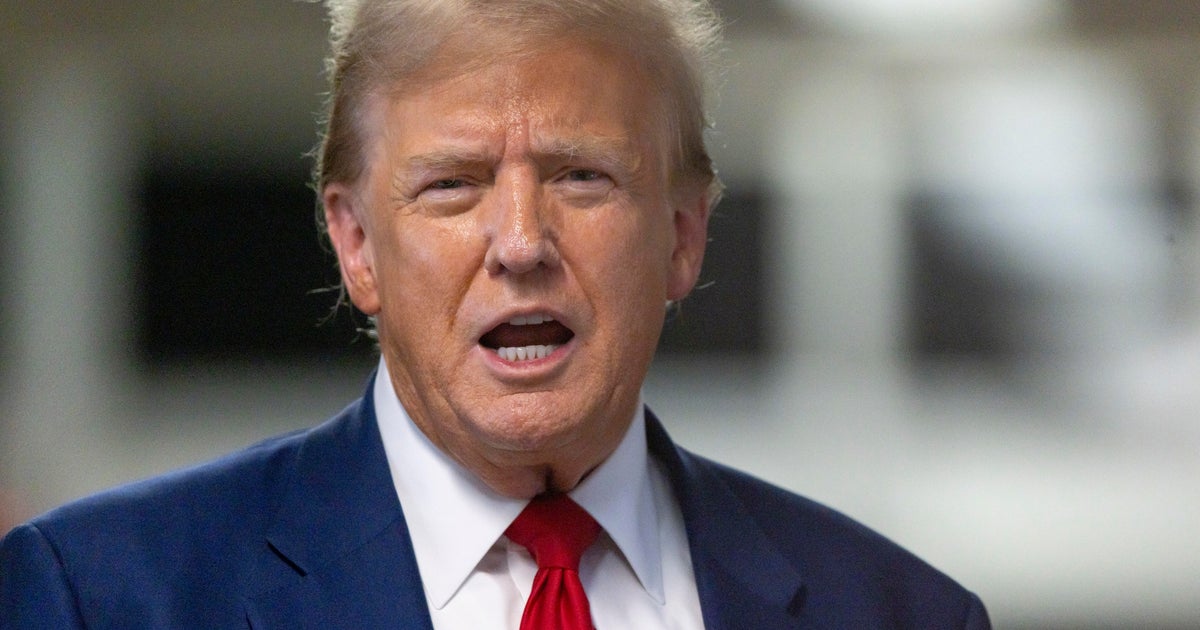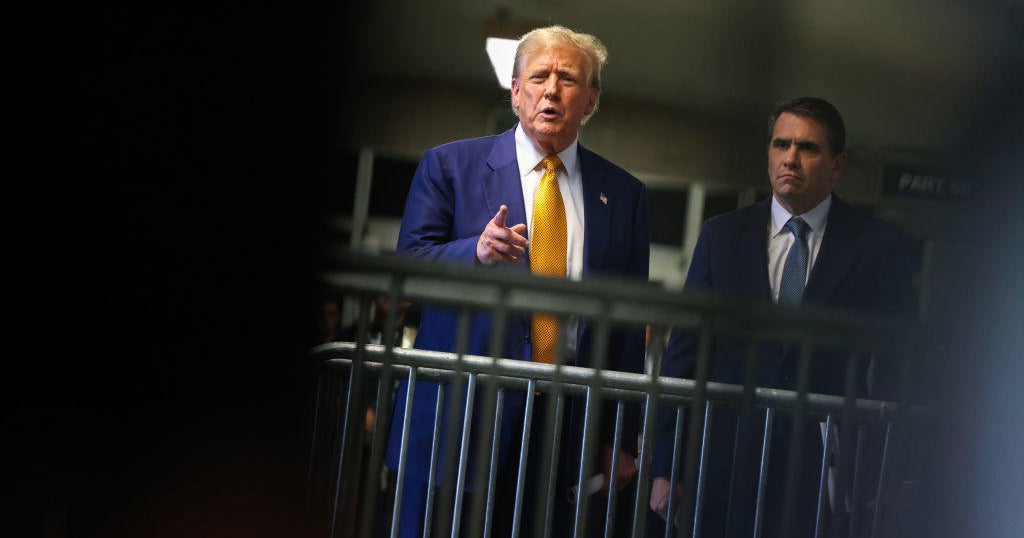Donald Trump just tweeted about you -- what do you do?
A high-profile dustup this week between Boeing (BA) CEO Dennis Muilenburg and President-elect Donald Trump has left corporate board members and CEOs on edge.
Shortly after news emerged that Muilenburg had questioned Trump’s stance on trade in a speech in Chicago, the president-elect fired back with tweets threatening to cancel the company’s contract to build two new Air Force One jets. Boeing’s stock fell but eventually recovered after the CEO and Mr. Trump made nice on a phone call. (Boeing also pledged $1 million toward the inauguration festivities.)
The exchange was a cautionary tale for business leaders who are accustomed to a certain way of interacting with political leaders, said Davia B. Temin, president and CEO of a boutique management consultancy focusing on crisis and reputation management.
Temin, who advises several industrial, biotech and financial firms, including Fortune 500 companies, talked with CBS MoneyWatch about the implications of the Trump-Muilenburg exchange. The following transcript was lightly edited for clarity and length.
MoneyWatch: Do you think the potential for companies to draw the ire of Mr. Trump on Twitter is something people have to think about in a new way?
Temin: Yes. Just as markets hate uncertainty, companies don’t like uncertainty much either. On the other hand, they do understand there’s a kind of leadership that makes examples of various situations or even individuals. This is not an unknown leadership tactic to a lot of businesses. I do think they’re going to have to adjust their risk analysis and their thinking to the new administration.
MoneyWatch: What does that look like?
Temin: Basically, what Trump does is give new meaning to the term “bully pulpit.” There are winners and losers. There’s an unpredictable standard for making examples of businesses that aren’t doing what he wants as a standard for America. There are demons and darlings, those who are shamed, and those who are extolled. It’s not a new form of leadership, and it can be very effective.
Doubtlessly, I think businesses will begin to learn from these early woodshed visits what’s acceptable behavior and what isn’t. They’ll learn, and I think they will in all probability conform.
What we can see now as you look for triggers -- some of them are fairly predictable -- one is you don’t want to be sending your operations visibly overseas. That’s not in sync with the campaign promises Trump made and what he’s trying to accomplish. If you’re going to learn your lessons, you won’t be doing that visibly right now.
Similarly, he’s known for making deals that are advantageous to his companies, and now he’s going to be looking to make deals that are advantageous to his country. Optics matter. So if you’re doing business with the government, don’t have it look like you’re making a huge profit on the back of the country. Whether or not it’s the reality is not as important.
MoneyWatch: Do you expect, with this change in behavior, that any companies will add Mr. Trump as a risk factor to their SEC filings?
Temin: No, I don’t think they will. This is a way of doing business. I don’t think it’s an unknown kind of risk factor. There’ll be a new form of Trump-watching. You’ll be on your guard against taking on issues that he’s championing.
MoneyWatch: The Boeing example has to be a real concern. The CEO’s rather tepid defense of free trade results in a dramatic tweet that erases about $1 billion from the company’s market value.
Temin: It’s an effective strategy. If you don’t know where he’s going to look, and you don’t know what’s going to trigger his interest or those of his team, you’re going to self-police.
MoneyWatch: Is that good for shareholders? Is that good for our economy if that’s the way business leaders are operating?
Temin: Look, I’m not going to make a comment about whether it’s good or it’s bad, but it is. We all know leaders in businesses that are run in that way. It can be effective. If you come under the gun, you make your deal with him, you get into line pretty quickly. You don’t necessarily take it on, though I’m sure there will be some who do.
Then as quickly as the attention is turned on you, it may turn off you. And sometimes, the friend of my friend is my friend. Then he hopefully will align with you. This is a new order, and I think the best advice I could give is to be aware.
MoneyWatch: Are you getting new customers who want to put together a plan?
Temin: Not so far. Everyone is concerned about the rising risk of doing business. That’s the way it is. The world is going very fast. Social media accelerates it all. Many board and risk committees are more interested in looking at the risk profile of their organization.
MoneyWatch: As a crisis manager, what would your advice be to those who disagree with Mr. Trump? What’s the best way to deal with someone who’s unpredictable and wields incredible power?
Temin: Telling your truth to power is never easy. It may well be more difficult than ever, but that, too, is an effective strategy. Sometimes you can have battles of the titans. It’s going to usher in a whole new and interesting era for business and for those who have strong points of view.
Our president-elect has very strong points of view, and he’s used to making deals, and he’s used to winning. His campaign promise has been to win for America. So I don’t think he’s going to let any point go very easily.
MoneyWatch: Within corporations, we’ve always had take-no-prisoners types as CEOs, but it’s new for a U.S. head of state.
Temin: Clearly, that’s what many in America are looking for. He’s not going to let his electorate down. There’s of course a period of adjustment. But both those who agree with him and those who disagree are going to learn very quickly what triggers to stay away from, to back down from or to run to confront.
In my world, when you choose an action, you better think about a 360-degree angle about the consequences. His is a strategy. You figure that out, and you adjust.
MoneyWatch: What about the real-time component? What about the use of Twitter that makes this different?
Temin: I don’t think he’s conducting his business on Twitter. This is a smart man. He puts his messages across. Whether it’s opportunistic or [planned out in advance] in some ways is not really the issue. He chooses the issues he’s attracted to and he thinks can set an example, and he uses those publicly through Twitter, at 3 a.m. or whenever it is, to make a point.
But it’s not all done on Twitter. He’s building a cabinet, but he’s not building it on Twitter. He’s making some public statements of the type of behavior, in this case of business, that he’s looking to reward and to punish.
MoneyWatch: If Donald Trump weren’t president-elect, and another president-elect was making demands about how he run his business, how do you think Donald Trump would react?
Temin: (Laughs) I simply can’t prognosticate on what that would look like
MoneyWatch: Can’t or won’t?
Temin: (Laughs again) But you learn to look for what the triggers are, and you self-police.
MoneyWatch: I have to ask for some practical advice. Let’s say Donald Trump just tweeted something negative about me or my company. What should I do -- or not do?
Temin: As a corporate professional, I would not respond publicly. I would reach out privately to Mr. Trump and his people, offer to see what we could do to put the situation to rights, so that we could both be on the same page, and strike a win/win deal. This advice would be different for an ideological or political adversary, who wanted to make the opposite points in public. But from a corporate point of view, I would pivot and explore in real time the art of the deal.
MoneyWatch: Anything else?
Temin: Donald Trump ran on a platform of disrupting the status quo. And that’s exactly what he’s doing. The rules are changing as we speak, but he’s being true to his campaign promises. Whether it’s for business or nonprofits, you start to see the predicable nature of the unpredictability. That makes it easier.
When you’re dealing in a crisis, you try to get us much information and insight as you humanly can. If you look at it from this point of view, there’s a predictability within his platform and how he successfully ran.



